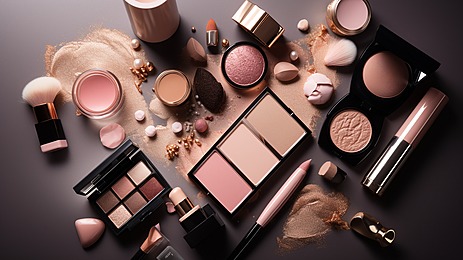The Sweet Life of Bettajelly
Exploring delicious recipes, fun food trends, and lifestyle tips that bring joy to your everyday.
Lipstick Lies and Other Makeup Myths Unveiled
Discover the truth behind beauty myths! Unveil the lipstick lies and transform your makeup game with expert insights and tips.
The Truth Behind Long-Lasting Lipstick: Myths vs. Reality
Long-lasting lipstick is often surrounded by myths that can mislead consumers. One common misconception is that all long-wear formulas dry out the lips. In reality, many of today's long-lasting lipsticks combine advanced technology with moisturizing ingredients, such as Allure's List of Best Long-Lasting Lipsticks. These formulations offer vibrant color while keeping the lips hydrated, debunking the idea that long-lasting means uncomfortable. Additionally, it’s important to note that the application technique plays a significant role; using a good lip liner can help prevent feathering and enhance longevity.
Another prevalent myth is that long-lasting lipsticks are difficult to remove. While some truly long-wear products may require a bit more effort, the notion that they leave an unremovable stain is misleading. Most long-lasting lipsticks can be easily wiped away with the right makeup remover. For instance, oil-based removers are highly effective, as highlighted in this Elle article. Understanding the difference between the myths and the reality can empower users to select the right products for their needs without compromising comfort or wearability.

Do Makeup Products Really Expire? Debunking Common Misconceptions
Makeup products, like all cosmetic items, do have a shelf life, but the notion that they expire shortly after purchase is often exaggerated. Many consumers hold the misconception that if a product doesn't have a specific expiration date, it can be used indefinitely. However, makeup products do have a lifespan that can generally range from six months to several years, depending on the type and the formulation. For example, liquid foundations and mascaras typically last around six months, while powder products can last up to two years. Understanding these timelines is essential for maintaining both product effectiveness and skin health.
It's also important to note that the conditions in which makeup products are stored can significantly impact their longevity. Products kept in a cool, dry place away from direct sunlight tend to last longer. Misconceptions like the belief that a product is still safe to use if it hasn't changed color or smell can be misleading. Bacteria can grow in products like creams and lotions, even if they appear normal. For more detailed information, you can check InStyle's guide on makeup expiration dates. Following guidelines from reputable sources can help dispel myths and ensure you're using safe, effective products.
Is Heavier Makeup Bad for Your Skin? Exploring Makeup Myths
When it comes to makeup, a common concern among beauty enthusiasts is whether heavier makeup can be detrimental to the skin. Many believe that layering thick foundation, concealer, and other products can suffocate the skin, leading to breakouts and irritation. However, the actual impact of heavier makeup largely depends on the products used and individual skin types. For instance, using non-comedogenic and breathable formulations can minimize negative effects while still offering the desired coverage. To read more about skin-friendly makeup choices, check out this detailed guide on skin-friendly makeup.
Another prevalent myth is that heavier makeup leads to premature aging. While makeup does not directly age the skin, the application and removal processes can contribute to skin health. Failing to properly cleanse the skin after use can result in clogged pores and irritation, which can ultimately affect its appearance. Thus, it's crucial to adopt a proper skincare routine, including gentle cleansing and moisturizing, to counteract any potential negative impacts. For tips on effective skincare practices, consider visiting the American Acne Foundation's skincare tips.